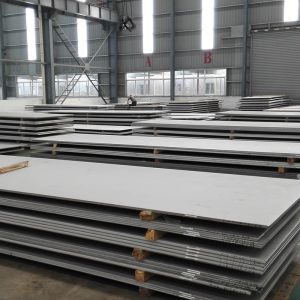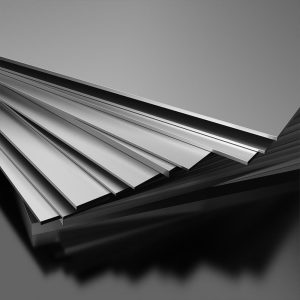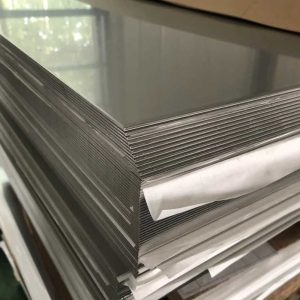How corrosion resistant is stainless steel plate?
02-20-2025
Jiangsu Xianghe Metal Products Co., LTD., is a processing and manufacturing enterprise specializing in the production and sale of stainless steel products. Its products include steel coils, steel plates, steel pipes and related profile accessories. Among them, stainless steel plates are our main products. Stainless steel plates are a kind of steel plates with strong corrosion resistance. Its main feature is that it can resist corrosion in weak medium environments such as steam and water. At the same time, it can also effectively resist the erosion of chemical media such as acids, alkalis and salts. I will give you a detailed introduction to the corrosion resistance of stainless steel plates:
1. Principle of corrosion resistance
The corrosion resistance of stainless steel plates mainly depends on their alloy composition (such as chromium, nickel, titanium, silicon, aluminum, manganese, etc.) and internal organizational structure. Among them, chromium plays a major role. It can form a passivation film on the steel surface, isolate the metal from the outside world, protect the steel plate from oxidation, and increase the corrosion resistance of the steel plate.
2. Corrosion resistance performance
(1) General environment: The surface of stainless steel plate is smooth, with high plasticity, toughness and mechanical strength. It has strong corrosion resistance to acid, alkaline gas, solution and other media, and can maintain stable performance in various environments.
(2) High temperature environment: Stainless steel high temperature oxidation resistant plate has good corrosion resistance, and can remain stable in high temperature environment. Within the chromium carbide grade temperature range, even if heated for a long time, it will not affect the performance of stainless steel plate in harsh corrosive media, which makes stainless steel plate have good application performance in high temperature environment.
(3) Special media: Some special types of stainless steel plates, such as corrosion-resistant stainless steel plates, are designed for environments with harsh corrosive conditions and have good corrosion resistance in media such as dilute sulfuric acid.
3. Factors affecting corrosion resistance
Although stainless steel plates have strong corrosion resistance, their corrosion resistance may be affected in some cases, such as:
(1) Electrochemical corrosion: Dust containing other metal elements or foreign metal particles accumulate on the surface of stainless steel. In humid air, condensed water between the attachments and the stainless steel connects the two into a micro-battery, triggering an electrochemical reaction and causing damage to the protective film.
(2) Organic acid corrosion: Organic juice (such as vegetables, noodle soup, sputum, etc.) adheres to the surface of stainless steel. In the presence of water and oxygen, it will form organic acid. Over time, the organic acid will corrode the metal surface.
(3) Local corrosion: Acid, alkali, and salt substances (such as alkaline water and lime water splashing for wall decoration) adhere to the surface of stainless steel, which will cause local corrosion.
(4) Chemical corrosion: In polluted air (such as an atmosphere containing a large amount of sulfide, carbon oxide, and nitrogen oxide), condensed water will form sulfuric acid, nitric acid, and acetic acid liquid spots, causing chemical corrosion.
4. Methods to improve corrosion resistance
In order to improve the corrosion resistance of stainless steel plates, the following methods can be adopted:
(1) Select the appropriate stainless steel type: Select the appropriate stainless steel type according to the specific use environment and medium type, such as austenitic stainless steel, martensitic stainless steel, ferritic stainless steel, etc.
(2) Optimize alloy composition: Improve the corrosion resistance of stainless steel by adjusting the alloy composition. For example, increasing the content of elements such as chromium and nickel can enhance the stability of the passivation film of stainless steel.
Surface treatment: Perform surface treatment on stainless steel plates, such as polishing and passivation, to improve the surface finish and corrosion resistance.
(3) Regular maintenance: During use, regularly inspect and maintain the stainless steel plates to promptly detect and deal with potential corrosion problems.
Stainless steel plates have strong corrosion resistance and can maintain stable performance in a variety of environments. However, during use, it is still necessary to pay attention to rust prevention measures, select the appropriate stainless steel type according to the specific use environment and medium type, and perform necessary surface treatment and maintenance work.
If you are looking to purchase a large quantity of stainless steel plates, please contact us. We are determined to be the most honest and professional steel sales platform in China, helping customers solve any steel purchasing needs!








